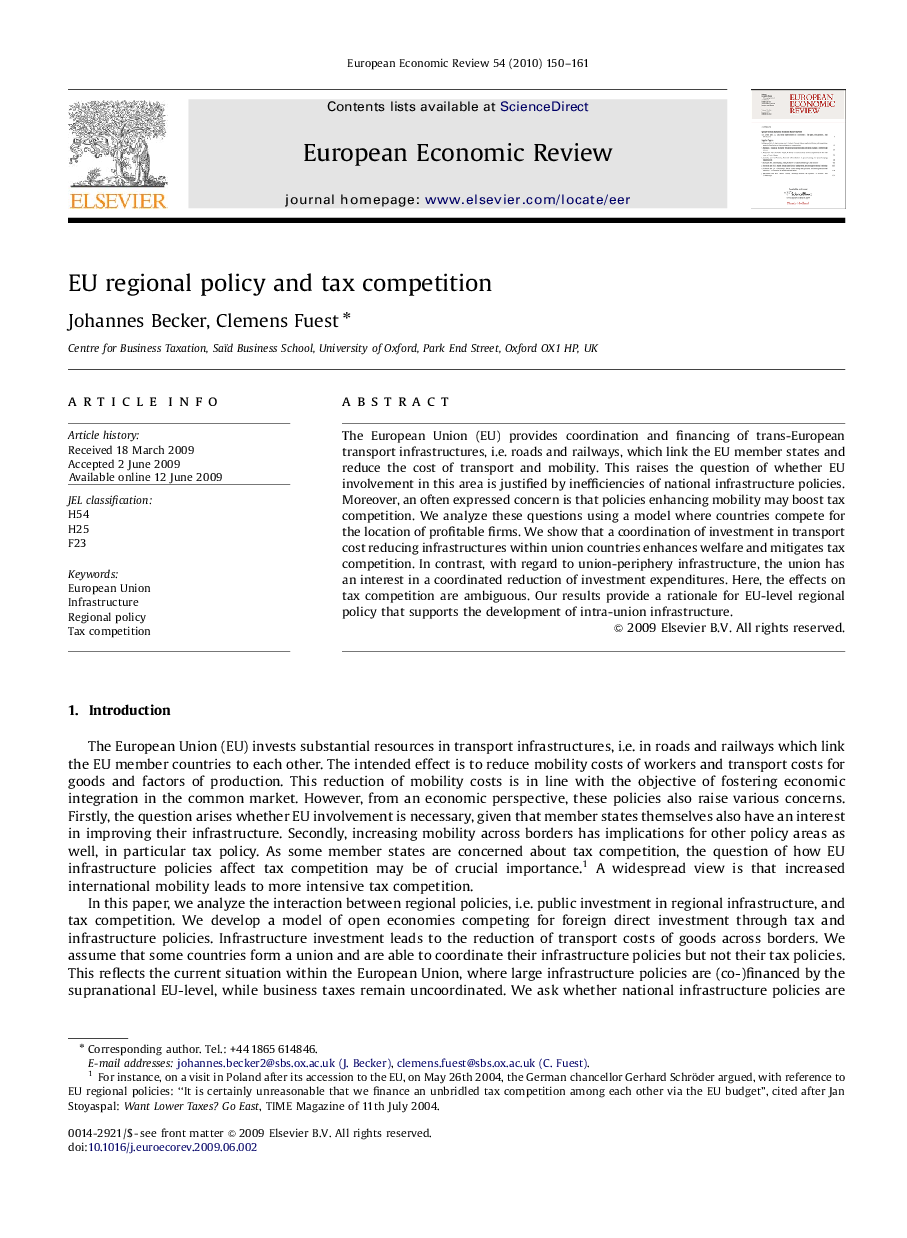| Article ID | Journal | Published Year | Pages | File Type |
|---|---|---|---|---|
| 5067438 | European Economic Review | 2010 | 12 Pages |
Abstract
The European Union (EU) provides coordination and financing of trans-European transport infrastructures, i.e. roads and railways, which link the EU member states and reduce the cost of transport and mobility. This raises the question of whether EU involvement in this area is justified by inefficiencies of national infrastructure policies. Moreover, an often expressed concern is that policies enhancing mobility may boost tax competition. We analyze these questions using a model where countries compete for the location of profitable firms. We show that a coordination of investment in transport cost reducing infrastructures within union countries enhances welfare and mitigates tax competition. In contrast, with regard to union-periphery infrastructure, the union has an interest in a coordinated reduction of investment expenditures. Here, the effects on tax competition are ambiguous. Our results provide a rationale for EU-level regional policy that supports the development of intra-union infrastructure.
Related Topics
Social Sciences and Humanities
Economics, Econometrics and Finance
Economics and Econometrics
Authors
Johannes Becker, Clemens Fuest,
